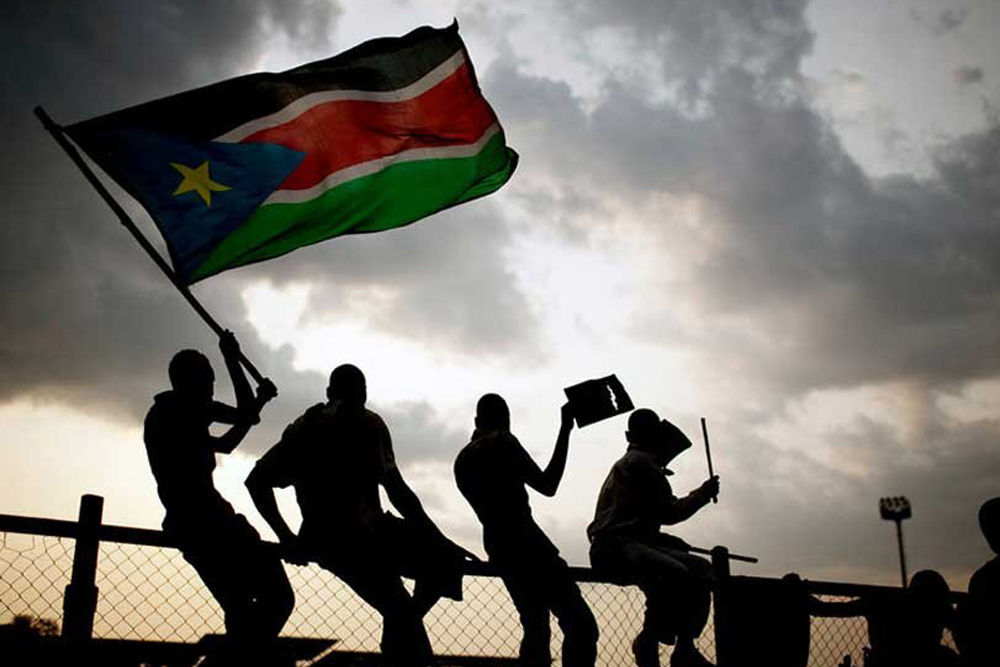As the world watches to see whether President Trump accepts the US election results, few have noticed thatcivil war is looming in Ethiopia, after Prime Minister Abiy Ahmed announced that he was sending troops to the Tigray province. This imperils not only Africa’s second most populous state but its neighbours, Sudan and South Sudan, as well.
Sudan has had a good run recently and is in a better position to weather any regional conflict. In a surprise movelast month, President Trump announced Sudan’s removal from the US State Sponsors of Terrorism List (SST)in exchange for normalising relations with Israel. The US is understood to have sweetened the deal with a raft of economic and political incentives, including humanitarian assistance and high-level trade delegations. It would also support Sudan in its discussions with international finance institutions on economic and debt relief.
Since the toppling of President Bashir in 2019, the new transitional government, led by Prime Minister Hamdok, has focused on reviving Sudan’s economy and managing its $60bn debt burden. Hamdok faces a severe economic crisis, aggravated by the Covid-19 pandemic, high inflation and the worst flooding in decades, that has affected more than 800,000 people and destroyed homes and large tracts of farmland just before the harvest. Food, bread and medicine are in short supply.
The sanctions removal means that Sudan can now expect substantial assistance from the International Monetary Fund and the World Bankand unlock investment into its fledgling economy.
This is good news for Sudan. But where does it leave its neighbour, South Sudan?
The international community had high hopes for South Sudan when it announced independence in 2011. But its optimism was misplaced. It never understood the Sudanese conflict that began with British colonialism and erupted after the British left in 1956. It wasn’t just a war between the Government of Sudan and the southern Sudanese rebels. Nor was it a fight between the Islamic North and the Christian South. It was a fight over resources and power.
South Sudan continues to fight. After its first post-independence civil war in 2013 and its endless cycle of violence and retribution, South Sudan is now as unstable as it was before it seceded from Sudan. To accommodate the different factions and keep old military men in power, the South Sudanese government and bureaucracy is peopled with those loyal to the former rebels.
Few have the skills needed to manage the country properly. They have squandered their oil opportunity, through mismanagement and corruption. With falling oil growth demand, oil is unlikely to remaina sustainable revenue source. This will challenge the South Sudanese economy which is 90% reliant on oil.
South Sudan is also facing multiple sanctions. In 2014, the international communityimposed travel bans and asset freezes, as well as an arms embargo. In 2018, the EU designated sanctions against individuals involved in serious human rights violations, alarmed by “the outbreak of a destructive conflict between the Government of South Sudan and opposition forces in December 2013.” Most recently, the US added First Vice President of South Sudan, Taban Deng Gai to its Global Magnitsky sanctions list for his involvement in the disappearance and deaths of human rights lawyer Samuel Dong Luak and SPLM-IO member Aggrey Idry.
If US foreign policy towards Sudan was driven by religious and ideological interests in the 1990s and 2000s, what we are now seeing is a shift to transactional diplomacy. There is no reason to think that President Biden would change course.
South Sudan is watching closely. It may be why it has instructed a US lobbying firm to allegedly lobby for their own sanctions removal. It is also why it welcomed a peace deal between Sudan and five rebel groups in September, paving the way for increased oil export cooperation with its neighbour.
But stability in the youngest African state is fragile. Even with a recently signed peace agreement between former foes, President Kiir and Vice-President Machar, violence is always lurking. South Sudan is plagued with the same environmental challenges of flooding and poor harvests. The fighting in Ethiopia will not help.
As South Sudan looks to the North, it will see a New Sudan, unshackled by the weight of its history and benefitting from international goodwill. Will this encourage South Sudan to look forward instead of back? Or will it unleash demons from the past?
Let’s hope that the international community pulls itself away from Trump’s horror show and starts paying attention to East Africa. It may be a long winter.
This piece was originally published in Modern Diplomacy on 12 November 2020.


